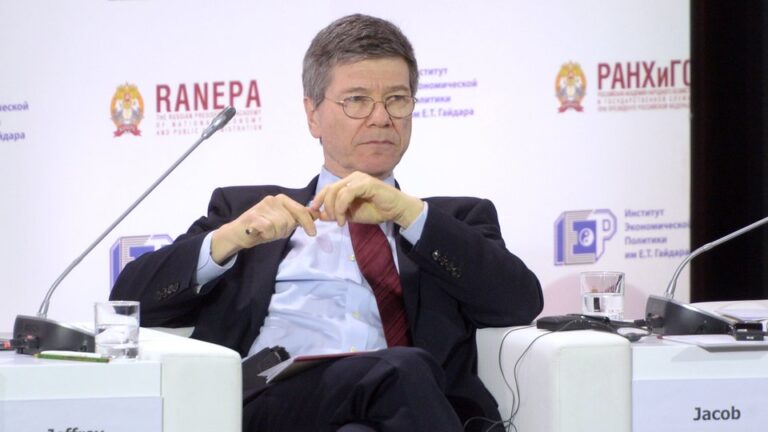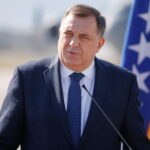Recent revelations point to senior positions in the UN having been infiltrated by individuals closely cooperating with foreign intelligence agencies or sympathizing with hostile regimes. These officials occupy high-ranking positions and have an impact on decision-making and the stance of the UN secretary-general. In July, the activities of UN Under-Secretary-General Atul Khare, who lobbies for a Russian company to receive UN funding as part of airlift support for peacekeeping missions, caught the eye of RLI analysts.
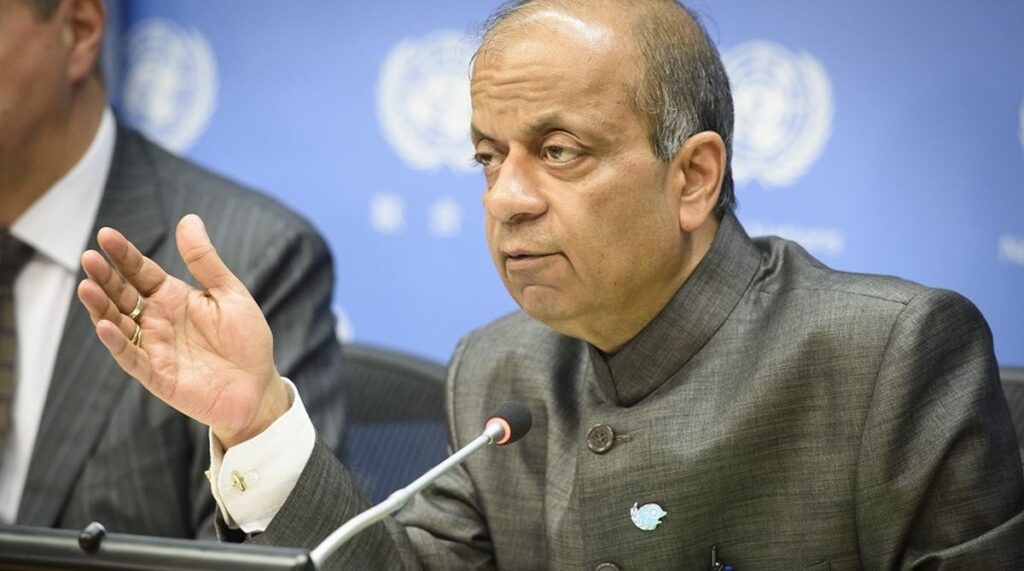
More on this story: Corruption at UN allows money flows to finance Putin’s regime in Russia
Currently, it’s a special adviser to Secretary-General António Guterres, Jeffrey David Sachs, who is in the focus as part of the think tank’s ongoing work to track public statements by officials from international organizations that are directed against the United States’ interests and echo propaganda narratives promoted by various authoritarian regimes.
An acclaimed economist, Mr. Sachs first came into the spotlight in 2022 after he publicly suggested that Covid-19 was leaking from a “U.S.-backed laboratory research program,” which reflected the narratives of a disinformation campaign run by both China and Russia.
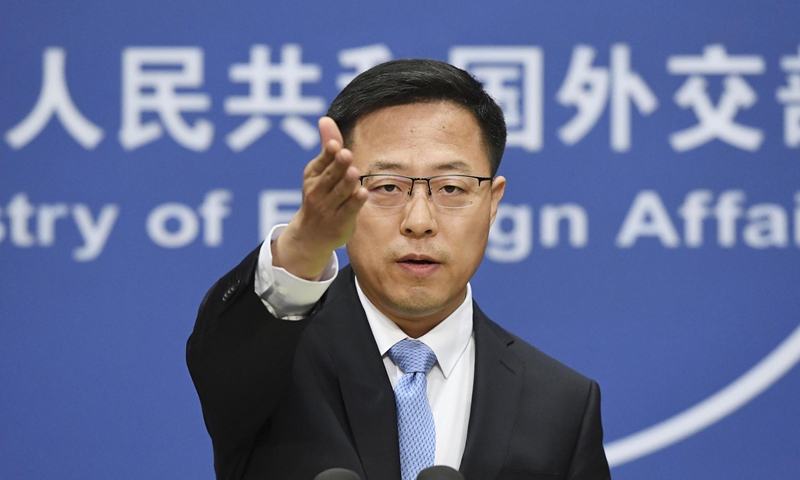
At the same time, he served as an advocate for China, denying the very possibility that the virus had been conceived in a Wuhan laboratory. In general, advocacy for China and Beijing’s interests can be clearly seen in Jeffrey Sachs’ work. Sachs is a long-time advocate of dismantling American hegemony and embracing the rise of China. He believes the term “genocide” is mistaken in relation to the repression of the Uyghurs in China. Sachs evaded questions about China’s repression of Uyghur people and referred to “huge human rights abuses” committed by the U.S. He has also argued for closer relations between the U.S. and China. Thus, his views on Chinese policies have always been consistent with the position expressed by the Chinese Foreign Ministry. In 2021, the rights groups said Sachs “betrayed his institution’s mission” by trivializing the perspective of those who were oppressed by the Chinese government. a former U.S. Ambassador Stephan Richter, wrote that Sachs was “actively agitating(!) for a classic Communist propaganda ploy“. In 2019-2021, he defended the Chinese company Huawei, questioning the assumption that it posed a threat to U.S. national security and trying to disrupt the extradition to the U.S. of Meng Wanzhou, the company’s chief financial officer, who had been detained in Canada.
The long-lasting promotion of Beijing’s interests on the part of Mr Sachs suggests his possible financial dependence on China.
However, a detailed analysis of Sachs’ public statements also points to his active participation in Russian propaganda campaigns. In particular, Sachs supported Russian narratives claiming the U.S. was allegedly involved in blowing up the Nord Stream gas pipelines in the Baltic Sea.
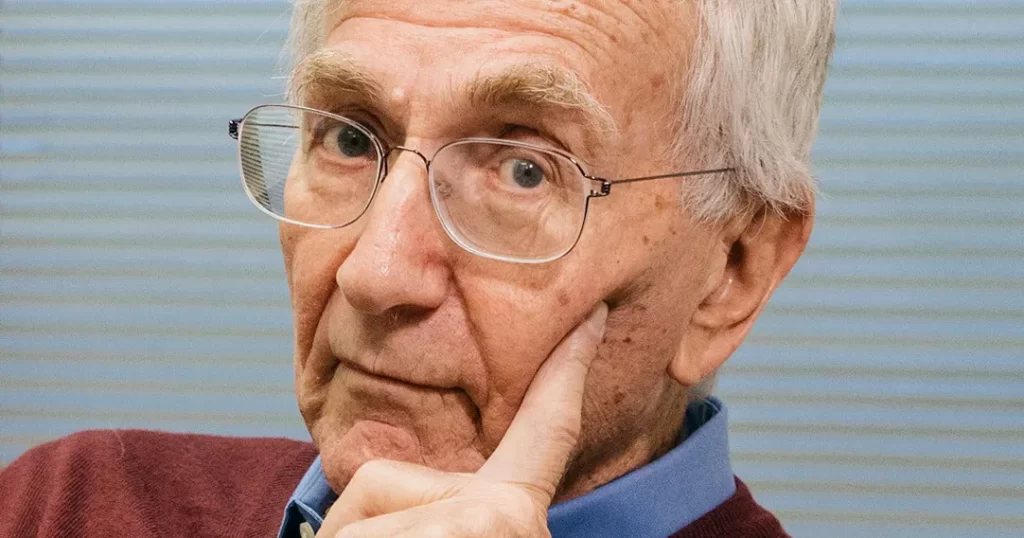
More on this story: Scale of Kremlin assets’ exposure in U.S.
In February 2023, he was invited by the Russian government to address the United Nations Security Council on the issue. Accusing the U.S. on the international platform of the UNSC of an act of sabotage, as part of a Russian military intelligence operation, leaves no doubt about the motives behind Jeffrey Sachs’ actions.
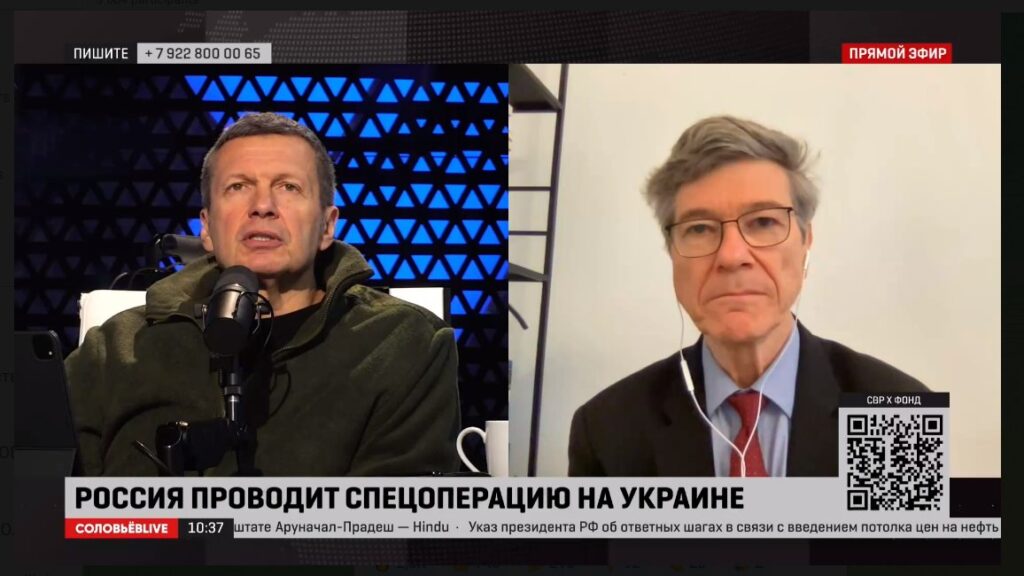
This conclusion is further corroborated by his two appearances on Russian state-owned TV propaganda panel shows hosted by Vladimir Solovyov in 2022, where he claimed that Russia’s invasion of Ukraine had been provoked by NATO expansion. The very participation of a U.S. national in Russian state-run propaganda shows is possible only if their commentary is in line with the Kremlin’s official position.
On issues of the Russian war on Ukraine, Sachs absolutely adheres to the Russian propaganda coverage and the position maintained by the Russian Foreign Ministry. They promote the need to cease defense assistance to Ukraine on the part of NATO, claim that that pro-Russian President Yanukovych was illegally overthrown as a result of the Revolution of Dignity and that the “coup” in Ukraine had been masterminded in Washington. They also push for the need for negotiations between Moscow and Kyiv that would imply territorial concessions from Ukraine. Sachs also criticized Finland’s move to join NATO using precisely the Kremlin’s arguments. According to our estimates, such rhetoric is not typical even for a supporter of ultra-leftist ideas, which are not characteristic of Mr Sachs.
According to our sources at UN headquarters, Sachs, in off-record communication, convinces colleagues of the need to lift Russia sanctions and restrictions.
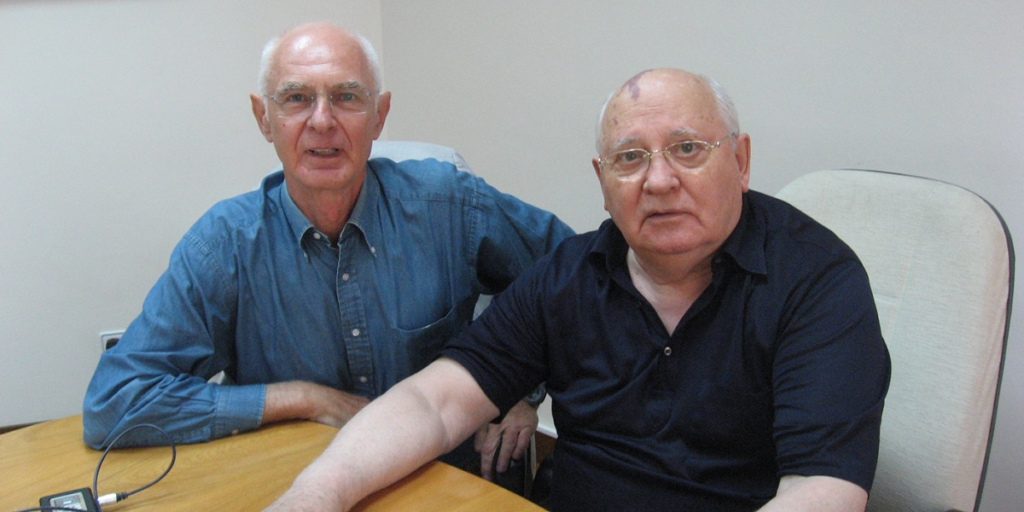
Sachs’s contacts with the Russians could stem back to the Mikhail Gorbachev (USSR) and Boris Yeltsin’s (Russia) era. He advised the Kremlin on Russia’s transition from the Soviet economy to a market model.
In the 2020 election, Sachs supported and advised Bernie Sanders. At the same time, an analysis of the views promoted by Sanders and Sachs points to political differences in issues of government and economic policy. According to Washington Post, Sanders was at one time briefed by U.S. officials that Russia is trying to help his presidential campaign. However, there is no direct evidence of Moscow using Jeffrey Sachs as part of their malign effort at election meddling. Sachs’s lobbying operations in the interests of foreign actors who are in confrontation with the United States is beyond doubt, as is circulating foreign propaganda and conspiracy theories in the U.S. media space to the detriment of national interests. Such hostile influence raises concerns and poses a threat not only to the UN integrity but also to the security of the United States.


